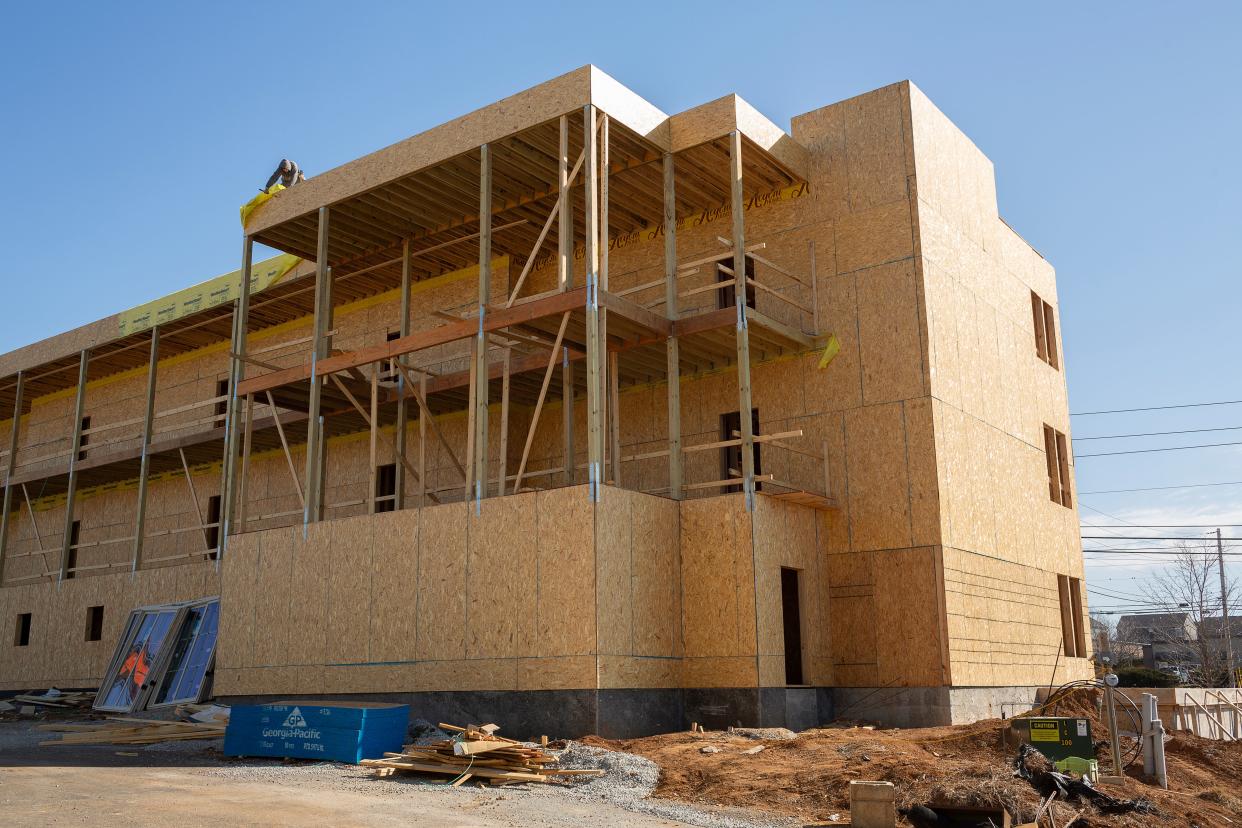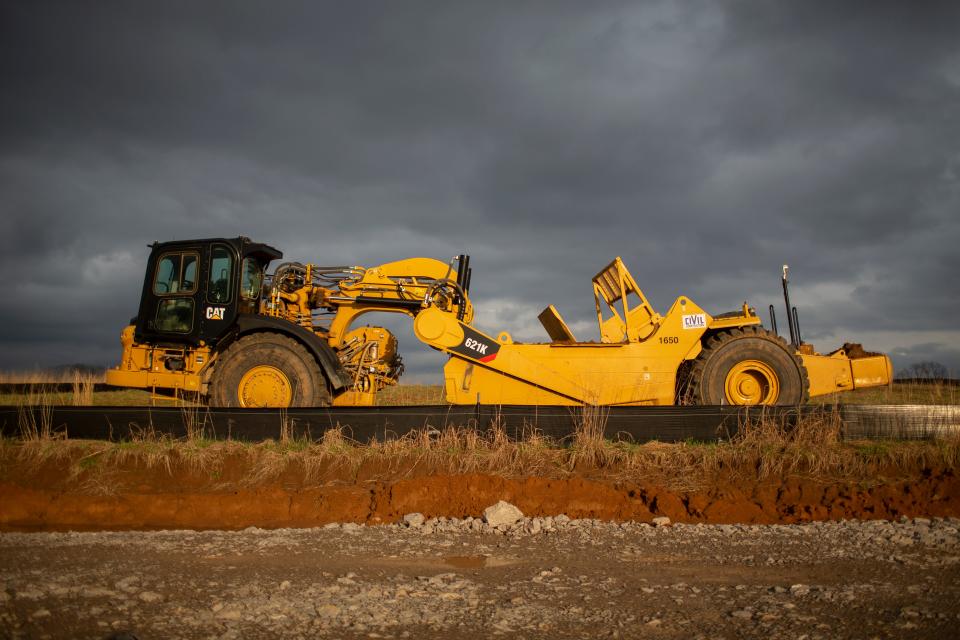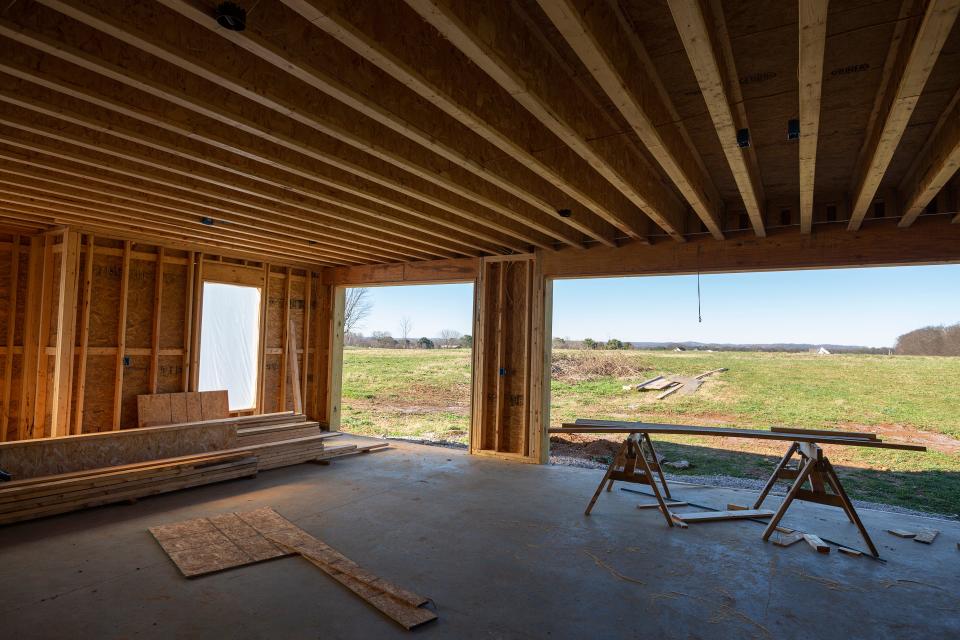Commissioners struggle to find funding for new growth in Maury County

The Maury County Commission voted unanimously this week to put the brakes on an effort to implement the County Powers Relief Act, a move some thought would build the county's revenue for new schools.
The move was initiated by Budget Committee Chair Scott Sumners who made the motion to postpone the vote until September 2022, following the county’s general election in August.
The proposal was introduced by Sumners earlier this month after the House Property & Planning Subcommittee voted down a bill that would have allowed the county to impose a building impact fee for new construction onto local builders. However, the Senate’s State and Local Government Committee previously approved the bill hours before it failed in the House.
More: Future property tax increase possible in Maury County after impact fee bill fails
“The next commission should try to take a crack at implementing an impact fee,” Sumners said. “If that fails then they can do what they need to do if that is the road that they want to go down.”
Sumners, who proposed enacting the County Powers Relief Act after the impact fee failed, said he decided to step back from the action after it was determined that the decision would not create the total revenue previously estimated.
“I am just a little upset about this whole situation in the end,” Sumners added. “We have built several schools, and we will have more and more debt as we continue to allow building to go unchecked in this county. The property developers have got us where they want us and that means we have to increase property taxes.”

Instead of about $2.5 million, the change would lead to an increase of about $800,000 and exclude building projects that do not have a heating or cooling system, like an external garage or barn.
“I would take a bill every year if it was me,” Summers said, who confirmed he would not seek reelection later this year. “I would take a bill every year until they get tired of Maury County requesting changes in this legislation to allow growth counties to do what they want to do. Annoy them.”
More: 'Strongly opposed': Homebuilders association resists Maury County’s pursuit of impact fees
In accordance with Tennessee's 2006 County Powers Relief Act, county governments that are experiencing rapid population growth can cover the final burdens of such growth with the ability to enact a "county school facilities tax” on residential development.
In order to meet the criteria to enact such a fee, the county must have experienced a 20% or greater increase in population between the last two federal decennial censuses or a 9% or greater increase in population over any subsequent four-year period.
The change also calls for each local government that would do so to repeal its adequate facilities tax.

“Once that adequate facilities tax is repealed, Maury County can never get it back,” said Commission Sue Stephenson.
Maury County qualifies for the benchmarks and the request cannot be denied by the state. In the recent past, the county's adequate facilities tax has paid for several road projects and the construction of two county fire stations.
More: No. 1 in state growth, no new schools: Maury commission votes down $76 million school building plan
During the March budget meeting held Monday, the committee voted 5-2 to approve the resolution. Commissioners Sue Stephenson and Connie Green cast the dissenting votes.
“We have a highway department that desperately needs to fix the roads in Maury County and we are one draught away from a water problem here in Maury County,” said Commissioner Terry Potts.

County leaders have previously shared the mindset that the implementation of impact fees on new development projects across the county, particularly in northern Columbia, will help relieve the county's funding burden on new infrastructure.
Based on current planned new developments, the county expects to see 14,000 new homes constructed in the coming decade.
“We hope the next administration will pick up the flag and rally around it to implement impact fees to the state so we can let growth pay for itself,” said Don Morrow, chair of the Maury County Commission.
“It does not make sense for people in Mt. Pleasant and Hampshire to be paying for schools in a growth area like Spring Hill. An impact fee will help solve that. It is a shame that the House of Representatives did not support us on that. We lost, and we want them to pick up the fight.”
Reach Mike Christen at mchristen@c-dh.net. Follow him on Twitter at @MikeChristenCDH and Instagram at @michaelmarco. Please consider supporting his work and that of other Daily Herald journalists by subscribing to the publication.
This article originally appeared on The Daily Herald: Commissioners hold off on implementing relief act in Maury County

